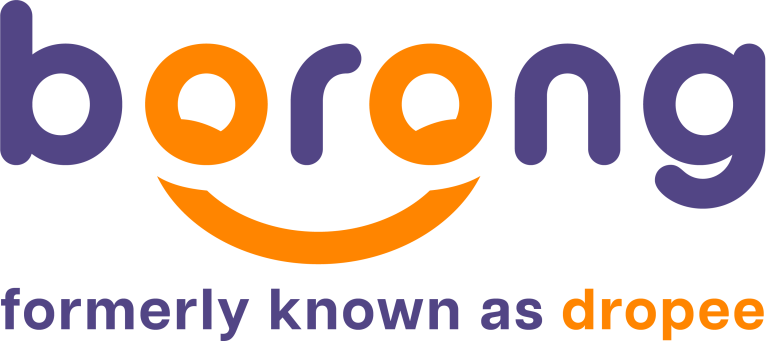New year resolutions are top-of-mind at the moment and for some of us, the goal is starting a business in Malaysia. It may be both intimidating and thrilling to launch a company. But with the right plan, you can approach your new business with more clarity at every step of the way and have a clear direction of what to do next.
Read on for a guide on starting a business in Malaysia this new year.

How to Start a Business in Malaysia
Define a Business Idea
Launching a company can be a simple process. The key is to start by making sure your idea is solid. This means understanding consumer demand so you can create a product or service that fulfils them. The research process is crucial to safeguard your business from premature failure. After all, 20% of businesses fail after the first year of operations.
Dig deep into the market for a gap but also consider your passions and interests. Whether you are launching a business in retirement or want an additional source of income, a good business idea that keeps you inspired will be the most sustainable in the long run.
Is there a skill you’re an expert at? You could turn it into a business. Some common ideas for business ventures include:
- Business consultation
- Taxes and bookkeeping
- Financial planning
- Event planning
- Graphic design
- Interior design
- Copywriting
- Personal training
- Landscaping
- Photography
Alternatively, you can sell products. Whether you are creating your own products or reselling them, you must always begin the development process with thorough research.
Perform Market Research
Starting a business in Malaysia requires market research to understand the competitive landscape. If you know what your competitors are doing, you will have a better idea of how to make your brand stand out in the market. This is because research helps you pinpoint your unique selling proposition (USP), which is what makes your product or service better than your competitors.
In-depth market research helps you to:
- Learn what your customers want.
- Find out what could go wrong with your product or service.
- Lose less money by helping you make better decisions.
- Find niche markets that you might not have known about.
- Set goals for your business that will boost its growth.
To narrow down your research area, start by identifying your target customers and your competitors.
Identifying Your Target Audience
The set of prospective buyers for your brand is referred to as your target audience. You will ultimately focus all of your marketing efforts and resources on this group, which is why it’s essential to characterise them. To achieve this, consider the people who gain from your product. To understand them better, you also need to consider variables like age, location, and even marital status.
Analysing the demands of your ideal consumers by creating buyer personas is a useful strategy. What is their age? What do they enjoy? Which social media sites do they spend the most time on? What matters to them?
To answer these questions, you can conduct surveys and direct conversations with your identified target audience. This is to help you:
- Make smart and cost-effective marketing decisions.
- Develop products that accurately meet customers’ needs.
- Increase revenue by focusing on the right audience.
Observe Your Competitors
You may get a better understanding of what currently exists in your sector by analysing competitor products or services. This might direct you toward strategies to strengthen your concept. Before investing time and money in product development, it’s important to identify potential weak points.
Here’s how to analyse the competition:
- Find out who your competitors are.
- Identify the products or services that your competitors sell.
- Check out their sales strategies and outcomes.
- Examine their prices and incentives.
- Analyse their product marketing strategies.
- Examine the degree of customer engagement they have.
- Look at their social media activity, tactics, and preferred platforms.
- Discover the mix of technology they use.
- Define their advantages, disadvantages, opportunities and threats in a SWOT analysis.
Come Up With a Business Plan
A business plan is essential if you want to apply for outside funding. However, even if you are going to fund the project on your own, a business plan can help you determine how much cash you’ll need to start, what it will take to make your company viable, what has to be done when, and where you’re heading.
Create a Business Roadmap
A business plan is a basic roadmap that will help you track your progress and list the steps you must take to accomplish your objectives. Consider a business plan as a tool to manage how your company expands and meets its objectives rather than a large document that you’ll just use once to get a bank loan.
Your business plan will largely be used to establish your strategy, tactics, and specific tasks for execution, including major milestones, deadlines, budgets, and cash flow. But you may also use it to appeal to investors, banks, and possible partners and board members.
You should adhere to a basic format if you must prepare a formal business plan paper. The typical business strategy comprises:
- Executive Summary
- Target Audience
- Products and Services
- Marketing and Sales Plan
- Objectives and Key Metrics
- Company Overview
- Management Team
- Financial Plan
- Appendix
Create an Exit Strategy
An exit strategy, like every other section of your business plan, is essential for any company looking for investment since it describes what will happen if you leave the company or go on to other endeavours. When it comes time to sell your firm, having an exit plan may also help you maximise its worth.
Below are examples of exit strategies:
1. Transferring ownership to a new party.
2. Transferring ownership to family members and friends.
3. Selling the company’s assets.
4. Ceasing operations and closing the business.
Start a Business in Malaysia
You have your big idea, you’ve done the research and you have a solid business plan. Now you’re all set to start a business in Malaysia!
Here’s what you need to do:
- Secure funding: Use your business plan to convince investors.
- Hire a team: Surround yourself with people who can help you meet your objectives faster.
- Gear up: Choose the right business tools that allow you to operate efficiently.
- Legalise it: Register your business and be sure to follow all legal procedures.
- Build the business: Choose a location and set up a shop. Alternatively, you can start an online business from the comfort of your home.
- Market the business: Develop a marketing plan based on your business goals.
- Engage with customers: Build your customer base and nurture relationships to encourage loyalty.
Your duty as an entrepreneur doesn’t end with your first sales. You must always work on expanding your company if you want to turn a profit and remain afloat. You’ll need to put in some time and work, but your company will reward you for your efforts.
Dropee Simplifies Starting a Business in Malaysia
Are you looking for the right platform to launch your business? Dropee can help.
With over 75,000 buyers, our marketplace is an effective way to gain exposure and drive sales. Sellers on Dropee Marketplace can manage sales cycles, offer multiple payment options and keep track of their inventory all in one place. The best part? Setting up your online store on Dropee is easy and affordable with personalised services and lower operating costs.
Sign up as a seller on Dropee Marketplace to scale your new business today.


